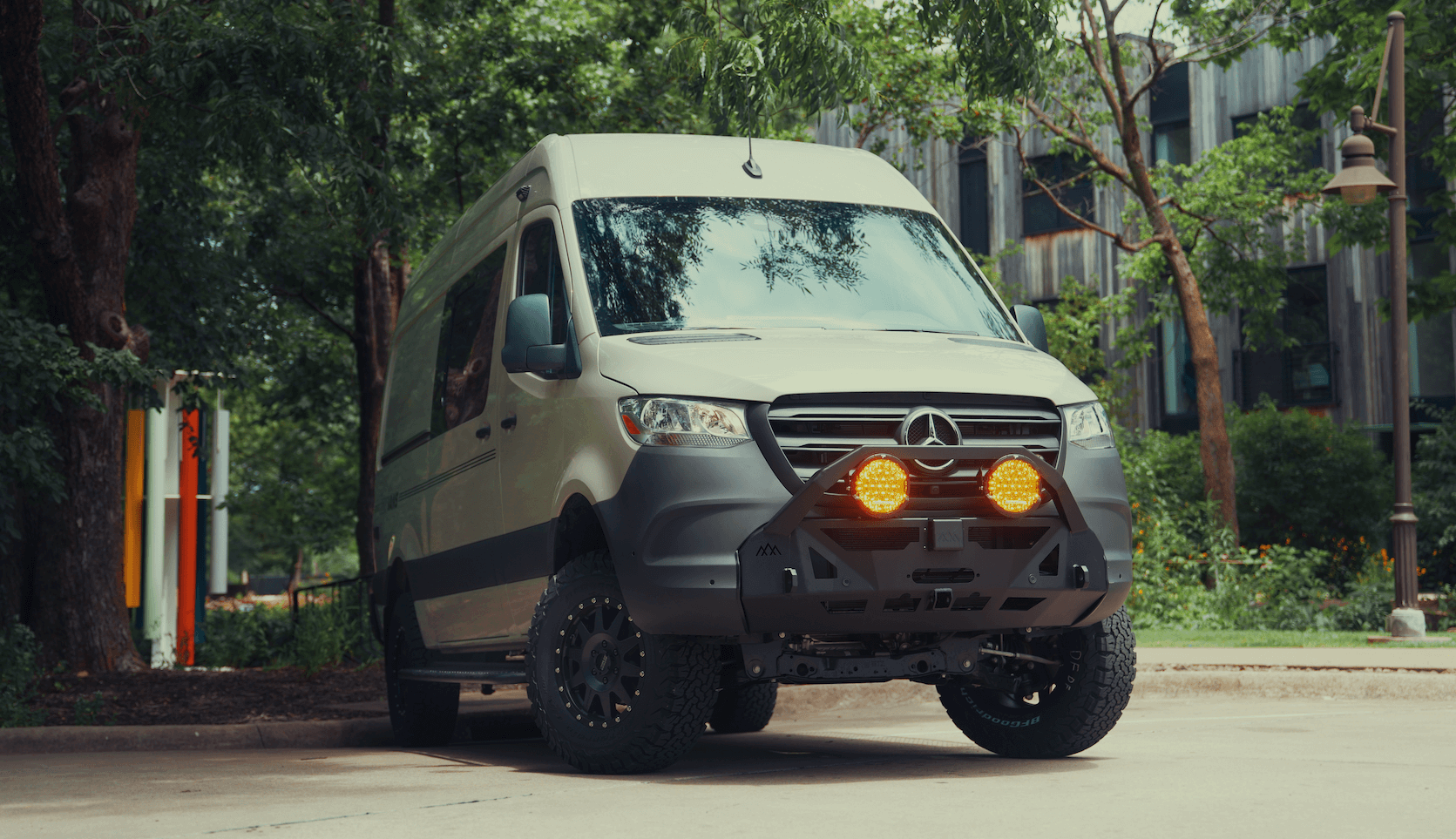Recreational Vans

Most states treat a camper van as a recreational vehicle when it contains permanent living facilities. Regulators look for a combination of features that indicate the van is designed for temporary human habitation, not just cargo or passenger use. When those features are present, the vehicle is often classified as a motorhome, commonly called a Class B.
Typical criteria include:
No single checklist applies nationwide. Some DMVs require two or three of these features, others require more. The more permanent and integrated the amenities, the more likely the van qualifies as a motorhome rather than a passenger van.
Authorities focus on permanence and intent. A cot tossed in the back or a camp stove that slides around usually will not qualify. Features that are bolted, plumbed, and wired to the vehicle structure are stronger evidence of a recreational vehicle. This is why professional conversions that integrate cabinetry, ventilation, and power management tend to pass inspections more smoothly.
If a camper van meets the definition of a recreational vehicle, it may be titled and registered as a motorhome. That can change plate type, fees, and inspection requirements. In many cases you do not need a commercial license to drive a motorhome if it stays under common weight thresholds. Always verify the gross vehicle weight rating and any state specific limits.
Insurance carriers often write different policies for motorhomes compared to passenger vans. Class B policies may include personal property coverage and campsite liability. Conversions that are not recognized as motorhomes might be insured as modified passenger vans, which can reduce coverage for interior build components. Accurate classification helps avoid claim disputes.
Many states ask for photos, receipts, and a feature list to reclassify a van as a motorhome. Some require a visual inspection to confirm permanent installations. Keep documentation for electrical and plumbing components, weight changes, and any structural modifications. The clearer the record, the faster the process.
Local rules can affect day to day use even after proper registration. Some cities restrict overnight parking on public streets, and some homeowners associations limit driveway storage of recreational vehicles. Campgrounds may apply different site types and hookup rules for motorhomes versus passenger vans. Emissions and safety inspections can also differ depending on classification.
For travel, remember that occupancy and seat belt laws still apply. Passengers must ride in seats equipped with belts that meet safety standards. Custom benches or sideways seats without approved restraints are commonly not allowed for travel. When in doubt, plan your route and lodging with legal parking in mind rather than relying on stealth techniques that may violate local ordinances.
For many owners, the simplest path is to aim for a clear, defensible motorhome classification built on permanent features. That tends to smooth registration, insurance, and resale.
If you want a van that meets motorhome criteria from day one, OZK Customs builds integrated, inspection friendly interiors with fixed sleeping, galley, and power systems. Explore our Recreational vans to see how we design for legal clarity and road comfort.
Looking for a one off layout that still aligns with the standards DMVs expect from a Class B style motorhome? Review our Custom build van process to understand how we handle planning, documentation, and handoff.
Prefer a platform that stays close to book value for easier financing and predictable ownership costs? Check out our Mainstream vans options designed to balance capability with everyday practicality.
Ready to move from research to a road ready build that satisfies legal definitions and elevates your travel life? Tell us how you camp, work, and haul gear, and our team will engineer a solution that feels effortless from inspection to interstate.
Ready for a van that confidently meets motorhome standards and passes inspections without guesswork? Speak with OZK Customs about a purpose built, professional conversion. Our team designs and builds Class B style vans with the right fixtures, documentation, and quality to simplify registration, insurance, and daily use. Tell us how you travel, and we will craft the rig that fits it.
ADDRESS:
6159 E Huntsville Rd, Fayetteville, AR 72701
PHONE:
(479) 326-9200
EMAIL:
info@ozkvans.com